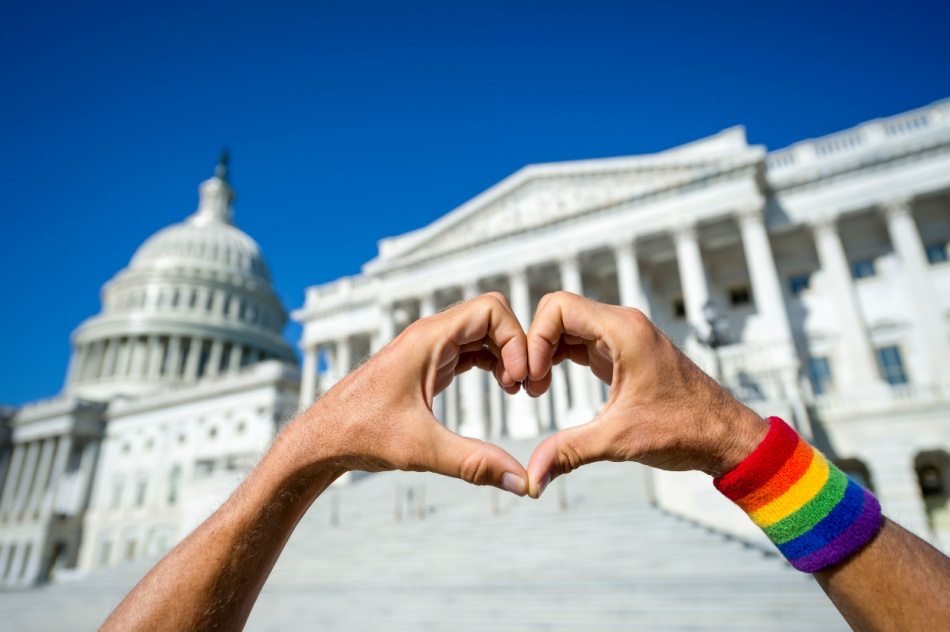Here are eleven more good things that happened in 2022 that gave us cause to hope and celebrate. If you haven’t read part I yet, click here to check it out.
Wordlemania hit hard
In 2022, the number everyone was begging to hear was your Wordle score. Though the game where you try to predict a five-letter phrase in six trials was released last year, its popularity skyrocketed this year. According to Google, it was the most popular search trend in all of 2022.
A record number of Americans had health insurance
In early 2022, eight percent of Americans were uninsured. Government data shows that this is a record low. Health coverage increased most in minority communities. Why? During the pandemic, Americans were eager for healthcare access, and they were helped by extra monies from the American Rescue Plan to make plans more accessible and keep people enrolled in Medicaid. The elimination of “surprise billing” and most medical debt on credit reports this year was also noteworthy.
More than 4 million people got jobs
The pandemic knocked down much of the global economy overnight, threatening a global depression. But U.S. government aid kept many households and businesses viable and ushered in one of the fastest job recoveries ever, reaching pre-outbreak employment levels by July—29 months after the pandemic. Despite several challenges, “you’re hired” announcements have continued. Four million more Americans have jobs this year.
Sequels and prequels reigned
“House of the Dragon” was released by HBO. “The Rings of Power” was available on Prime Video. “Obi-Wan Kenobi” and “Andor” were both available on Disney Plus. “Black Panther: Wakanda Forever” was created by Marvel. “Avatar: The Way of Water” marks James Cameron’s return. With “Top Gun: Maverick,” even Tom Cruise got in on the action.
Audiences saw their beloved characters in fresh narratives and, in many cases, with more varied ensembles. This beautiful year of prequels and sequels was Hollywood’s version of comfort food, and audiences were here for it.
Schools reopened— and stayed open
After nearly two years of covid closures in some areas, schools eagerly embraced a return to in-person learning and activities. Even though many of their parents were hesitant to return to work, the majority of the children welcomed it. While there are learning losses to make up, particularly in higher-poverty regions, it was heartening to see school buses back on the road and students back in the classroom – and socializing – together for the duration of the school year.
The Washington Football Team got a new name
Greetings, Washington Commanders! It wasn’t difficult to come up with a new moniker in the end, and D.C.-area fans and players instantly accepted it. The team is even having a successful season.
Bipartisanship on guns, same-sex marriage, and chips
Even in this era of polarization, there was some bipartisanship in the halls of the Capitol. Following the tragic Uvalde, Texas, elementary school shooting, Republicans joined Democrats in passing key legislation, including the most significant gun-law tightening in decades, historic legislation protecting same-sex marriage across state lines, and major new subsidies for U.S.-made semiconductor chips. In 2023, we’d like to see more of this.
Deficit reduction made a (very modest) comeback
For the first time, the total US debt surpassed $30 trillion (and then $31 trillion) this year. There is plenty of blame to go around for how the country got to this point. However, it was encouraging to see some effort in Congress to fund the major programs that lawmakers desire. Although not perfect, the Inflation Reduction Act takes an essential first step toward tackling climate change while simultaneously reducing the deficit, thanks to modest corporation tax increases and decreased prescription drug prices. What is the overall estimated savings? Approximately $240 billion over the next decade.
AI is having a moment
People have been concerned for years about AI and robots taking over popular vocations such as truck driving. Instead, AI is threatening many “white-collar jobs” since it has mastered languages, speech recognition, and even decision-making. AI is now capable of predicting diabetes, protecting against cyber threats, and even (potentially) solving world hunger. The bots are improving, which is something humans can (mostly) rejoice about.
Crypto got sober
The collapse of the crypto exchange FTX was a harsh reality check for digital currencies. It turns out that cryptocurrencies are not good inflation hedges. They are not always profitable. And, surprise, they have many of the same, if not more, risks than traditional investments. Crypto isn’t going away anytime soon, but there’s a significant caution flag now. Bitcoin has lost more than 60 percent of its value this year, but investors now have a clearer understanding of what they are getting themselves into.
And the award goes to… older Americans
As much as “30 Under 30” lists are popular, there has been a lot to celebrate recently among Americans (and Canadians) “of a certain age.” Tony Bennett, 95, received a Grammy in April. Angela Alvarez, 95, took up the award for best new artist at the Latin Grammys. At the age of 82, Erlinda Biondic became the oldest woman to complete a 100-mile race (she lives in Canada, but she set her record in New Jersey). And, at the age of 100, World War II veteran Lester Wright broke a new 100-meter dash record (26.34 seconds) for centenarians, earning a standing ovation from the audience.











